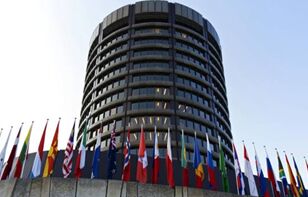西方银行争抢“一带一路”蛋糕
|
Their political leaders may be refusing to endorse China’s Belt and Road Initiative, but British and US banks are still rushing to seize opportunities thrown up by Beijing’s vast investment in the “new silk road” trade corridors spanning 65 countries. The hundreds of billions of dollars China has committed to trade and infrastructure projects across much of central and south-east Asia, the Middle East, Europe and Africa has whetted the appetite of big western banks with operations in those areas, such as Citigroup, HSBC and Standard Chartered.
“It’s huge — the private sector capital that comes in afterwards will be really impactful, assuming it all happens,” says Bill Winters, chief executive of Standard Chartered. “Our job is to try and pull the different pieces together, because there will be some local financing that is required as well.” The big banks have held conferences on BRI, appointed senior bankers to champion their role in the initiative and set up committees to co-ordinate their approaches across different business activities. They say these efforts are bearing fruit, listing dozens of financing deals they have won that are related in some way to the project. Gerry Keefe, head of corporate banking in Asia-Pacific at Citigroup, says: “Our multinational clients — both from the US and in Asia — see the Belt and Road Initiative as a generational opportunity to expand the scale and reach of their businesses.” Despite their public enthusiasm, however, nagging doubts exist among western bankers about whether BRI will provide the instant bonanza that some may have initially hoped. Their position is undermined by the ambivalence of their own governments towards the initiative. Theresa May refused to give written support to the project during the UK prime minister’s trip to China last month, while the US has viewed it with suspicion, particularly since president Donald Trump’s designation of China as a “strategic competitor”. The vagueness of the project invites scepticism. “It is pretty broad: based on what Beijing has put out it covers half the world,” says another western banker. “It is just part of China’s outbound policy. I don’t know any BRI bankers. I don’t even know what they are.” Western banking executives also say they are leaving the big state-sponsored infrastructure projects to local banks and development finance institutions. Instead they are focused on picking up ancillary business, such as providing foreign exchange, trade finance, interest rate swaps, or cash management to the multinational companies that work on projects. Citigroup has led large bond issues for Bank of China and Beijing Gas to finance their BRI plans. It has also won cash management and foreign exchange hedging contracts for several Fortune 500 companies operating on BRI projects. StanChart is set to highlight its strong position for BRI business when it reports annual results on Tuesday as this is a key part of its plan to generate the revenue growth necessary to achieve its target of making a return on equity above 10 per cent. The bank lists 20 financing deals it has won in the past four years that are linked to BRI. These include a $515m project financing for a power plant in Zambia that was guaranteed by China; a $200m loan for a Bangladesh electricity plant being built by a Chinese consortium; and a $42m export credit facility for a Sri Lanka gas terminal that was guaranteed by China. But Ben Hung, head of Greater China and North Asia at StanChart, says investors will need to be patient. “You have to look at it in a 10 to 20-year horizon — things won’t happen in one or two years,” he says. “People excessively focus on whether there needs to be project financing, but in reality there is a lot of that and bit by bit, step by step, guarantees, FX, escrow accounts, etc — all those things — are very important to these Chinese players.” |









